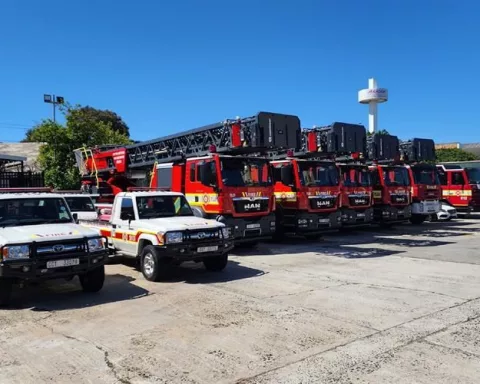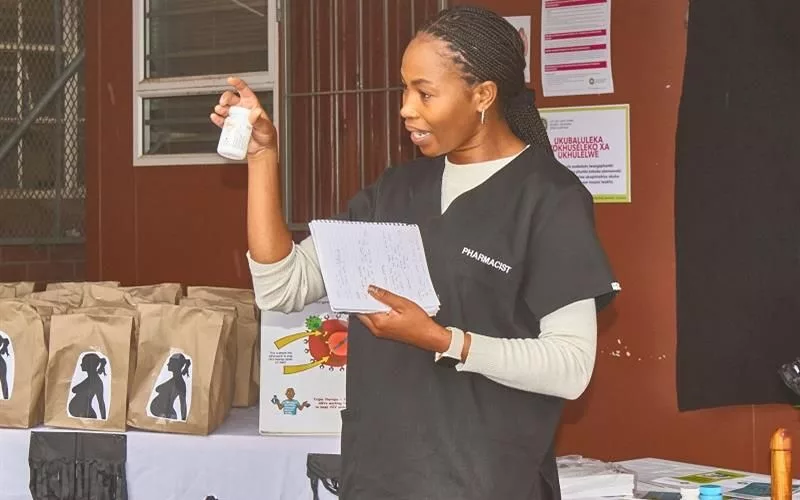Cape Town’s Mayor, Geordin Hill-Lewis, has called on the Finance Minister to reconsider proposed austerity measures that would cut grant-funding to municipalities and provinces. Hill-Lewis proposes that cuts should not affect services for the underprivileged but come from government departments that lack a significant function. Despite financial limitations, Cape Town has prioritized grant-funding to improve housing and informal settlements, with Mayor Hill-Lewis emphasizing the crucial role of passenger rail in the city’s growth and advocating for wise financial planning to promote inclusive growth.
Heading: What is the Call for Forward-thinking Financial Strategies in Cape Town?
Recently, Cape Town’s Mayor made a plea to the Finance Minister to rethink proposed austerity measures that would drastically cut grant-funding to municipalities and provinces. Mayor Hill-Lewis proposes that cuts should not impact services for the underprivileged but come from government departments that lack a significant function. Despite financial limitations, Cape Town has prioritized grant-funding to improve housing and informal settlements. The Mayor also emphasizes the crucial role of passenger rail in the city’s growth and advocates for wise financial planning to promote inclusive growth.
Heading: Cape Town’s Concerns over Proposed Austerity Measures
Recently, the South African city, Cape Town, has been in the national limelight. The Mayor of the city, Geordin Hill-Lewis, made a piercing appeal to the Finance Minister, Enoch Godongwana. The Mayor’s plea, delivered loudly and unambiguously, called for the Minister to rethink the proposed austerity measures, which would drastically cut grant-funding to municipalities and provinces. Such a decision carries the risk of slowing down the city’s progress and growth, especially affecting the most vulnerable.
In the 2023/24 financial year, Cape Town has suffered a deficit of more than R107 million from housing and informal settlement grants. These nationwide cuts, confirmed in the medium-term budget policy statement of October 2023, are the precursors of a financial storm. Mayor Hill-Lewis’s call to action was hence filled with a sense of urgency. His worry centers on the possibility of more budget cuts that adversely affect the poor, which could alter Cape Town’s spending priorities on essential services and housing.
Heading: Mayor Hill-Lewis’s Proposal to Reallocate Funds
Mayor Hill-Lewis offers a thoughtful response to the proposed funding reductions. His proposal suggests that cuts should not impact services for the underprivileged. Instead, they should come from government departments that lack a significant function. He also highlighted the substantial spend on ministerial VIP security, which could surpass R3 billion. Hill-Lewis believes this allocation could be redirected to address the city’s more urgent needs.
Under challenging financial circumstances, Cape Town has shown its progressive, pro-poor, and pro-growth approach to budget allocation. This approach sets a standard that Mayor Hill-Lewis hopes the Finance Minister, and other cities nationwide, would emulate. Furthermore, the latest census data, which forecasts Cape Town’s future as South Africa’s most populous city, strengthens Mayor Hill-Lewis’s plea for increased Equitable Share funding.
Heading: Cape Town’s Efforts Amidst Financial Constraints
The Urban Settlements Development Grant (USDG) and Informal Settlements Upgrading Grant (ISUPG) have experienced a cut of R107 million in the current financial year. Despite these financial limitations, Cape Town city has ensured that grant-funding was primarily allocated to housing and informal settlement improvements. Over the past three financial years since 2020/21, the city has spent or contractually committed 99% of the USDG for its intended purpose. Moreover, in the financial year 22/2023, the city used all of its grant-funding under the ISUPG to improve informal settlements.
Heading: The Importance of Passenger Rail in City’s Development
Mayor Hill-Lewis seized the opportunity to underscore the crucial role of passenger rail in the city’s growth. He encouraged the national government to commit budgetary resources to delegate passenger rail responsibility to capable metros. The city’s ongoing study on rail devolution feasibility has demonstrated that efficient trains could save lower-income families in the city R932 million annually, support over 51,000 jobs, and contribute a staggering R11 billion to the local economy each year.
However, the State of the Nation Address (SONA) by President Ramaphosa was notably silent on the stalled national Rail Devolution Strategy. The Mayor cautions that if this silence persists, it could indicate the national government’s abandonment of this policy priority. Further, it could result in a substantial intergovernmental dispute, as the city’s commuters cannot wait indefinitely for a definitive deadline on the transfer of passenger rail control in Cape Town.
Heading: Mayor Hill-Lewis’s Advocacy for Prudent Financial Planning
Mayor Hill-Lewis’s appeal illuminates the essential role of wise financial planning in promoting inclusive growth. His opposition to the proposed austerity measures signifies a dedication to the city’s poor and a focus on progressive budgetary decisions. As Cape Town prepares for its impending population surge, the city is ready to advocate for pro-poor and pro-growth policies, even in the face of financial hardship.
- What is the Call for Forward-thinking Financial Strategies in Cape Town?
-
The Call for Forward-thinking Financial Strategies in Cape Town is a plea made by the Mayor of Cape Town to the Finance Minister to reconsider proposed austerity measures that would cut grant-funding to municipalities and provinces.
-
What are Cape Town’s concerns over proposed austerity measures?
-
Cape Town’s concerns over proposed austerity measures are the anticipated impact on the city’s progress and growth, especially affecting the most vulnerable.
-
What is Mayor Hill-Lewis’s proposal to reallocate funds?
-
Mayor Hill-Lewis’s proposal suggests that cuts should not be made on services for the underprivileged but come from government departments that lack a significant function. He also highlighted the substantial spend on ministerial VIP security, which could be redirected to address the city’s more urgent needs.
-
What are Cape Town’s efforts amidst financial constraints?
-
Despite financial limitations, Cape Town has ensured that grant-funding was primarily allocated to housing and informal settlement improvements. Over the past three financial years since 2020/21, the city has spent or contractually committed 99% of the USDG for its intended purpose.
-
Why is the importance of passenger rail emphasized in the city’s development?
-
Passenger rail plays a crucial role in the city’s growth, saving lower-income families in the city R932 million annually, supporting over 51,000 jobs, and contributing a staggering R11 billion to the local economy each year.
-
What does Mayor Hill-Lewis’s advocacy for prudent financial planning mean for Cape Town?
- Mayor Hill-Lewis’s advocacy for prudent financial planning means a dedication to the city’s poor and a focus on progressive budgetary decisions. As Cape Town prepares for its impending population surge, the city is ready to advocate for pro-poor and pro-growth policies, even in the face of financial hardship.












